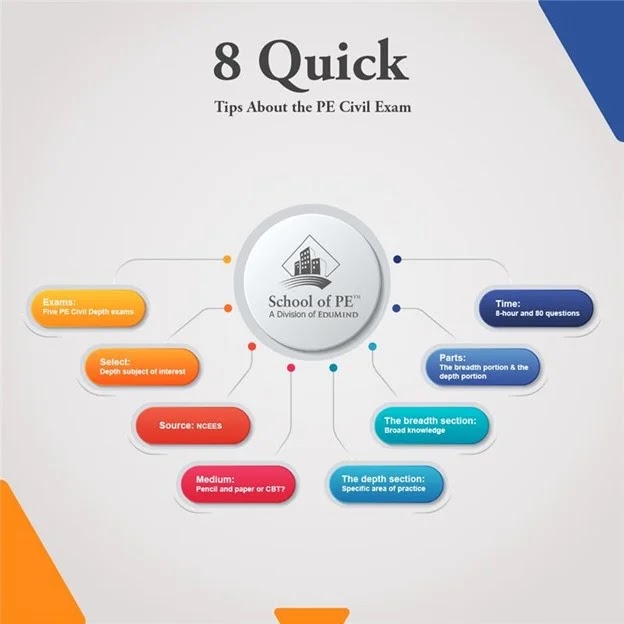Civil Engineering is arguably the broadest discipline in the field of engineering. According to the National Council of Examiners for Engineering and Surveying (NCEES), there are five PE Civil depth exams offered, which is more than any other discipline. It is important to begin thinking about your chosen depth toward the end of your college career. This way, you can enroll in the electives that suit your depth subject interest. If you decide to wait and work for a few years, you can also select your depth subject after you've gained some experience. Keep in mind that your depth subject must be selected upon registering for the PE Civil exam.
Selecting your depth subject is critical to your success as an engineer. After all, you will spend the next 15-20 years developing and cultivating your specialty to ultimately become a subject matter expert. This means being a long-range thinker and taking the time to make deliberate decisions being cognizant of opportunities that develop, supplement, or offset your career experience.
The greatest resource for understanding the PE Civil exam is the NCEES. This organization administers the Fundamentals of Engineering (FE), Principals and Practices of Engineering (PE), Fundamentals of Surveying (FS), and Principals and Practices of Surveying (PS) exams. Some of these exams are administered with pencil and paper, while others have made the switch to CBT, or computer-based testing. According to ncees.org, all exams will be computer-based by 2024. Click here to view the conversion schedule.
Currently, in 2020, the PE Civil Exam is an 8-hour, pencil-and-paper exam with 80 questions. The exam is administered in two parts: The breadth portion and the depth portion. No matter your chosen specialty, the breadth portion of the exam will be the same. Then, the second half of the exam will focus only on the depth subject of your choice.
The breadth section of the PE Civil exam is administered during the morning and is typically 4-hours long with 40 questions. According to the NCEES, these 40 questions consist of the following: Project Planning, Means and Methods, Soil Mechanics, Structural Mechanics, Hydraulics and Hydrology, Geometrics, Materials, and Site Development. This portion of the exam is meant to test the Engineer's broad knowledge of these subjects within Civil Engineering. As a licensed Engineer, you will most likely be expected to possess broad knowledge in order to make certain decisions in these subject areas.

The depth section of the PE Civil exam focuses on a specific area of practice. Exam candidates are expected to be able to use all applicable design manuals and criteria related to the depth subject. The PE Civil exam has five depth subjects to choose from: Construction, Geotechnical, Structural, Transportation, and Water Resources and Environmental. As a licensed Engineer, you will be expected to possess depth knowledge and be responsible for projects within your specific area of practice, your specialty, or depth.
There are many resources available to assist students as they prepare for the PE Civil exam. These resources include refresher courses and one-on-one tutoring which are offered by School of PE. School of PE also offers practice problems and exams for students to become more comfortable with their respective subjects. Other resources include relevant and sometimes required exam publications and textbooks. For more information about School of PE's exam review courses, email info@schoolofpe.com or call 614-873-7475.
No comments :
Post a Comment